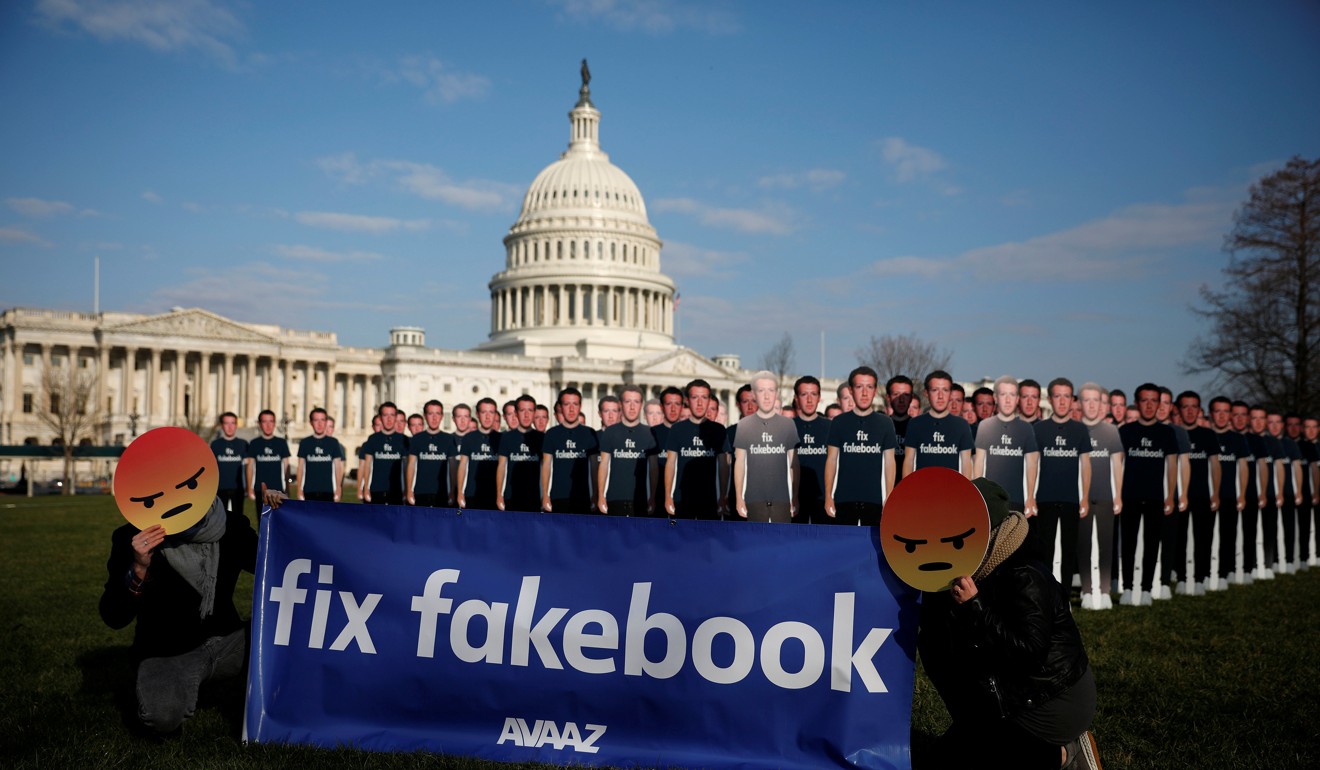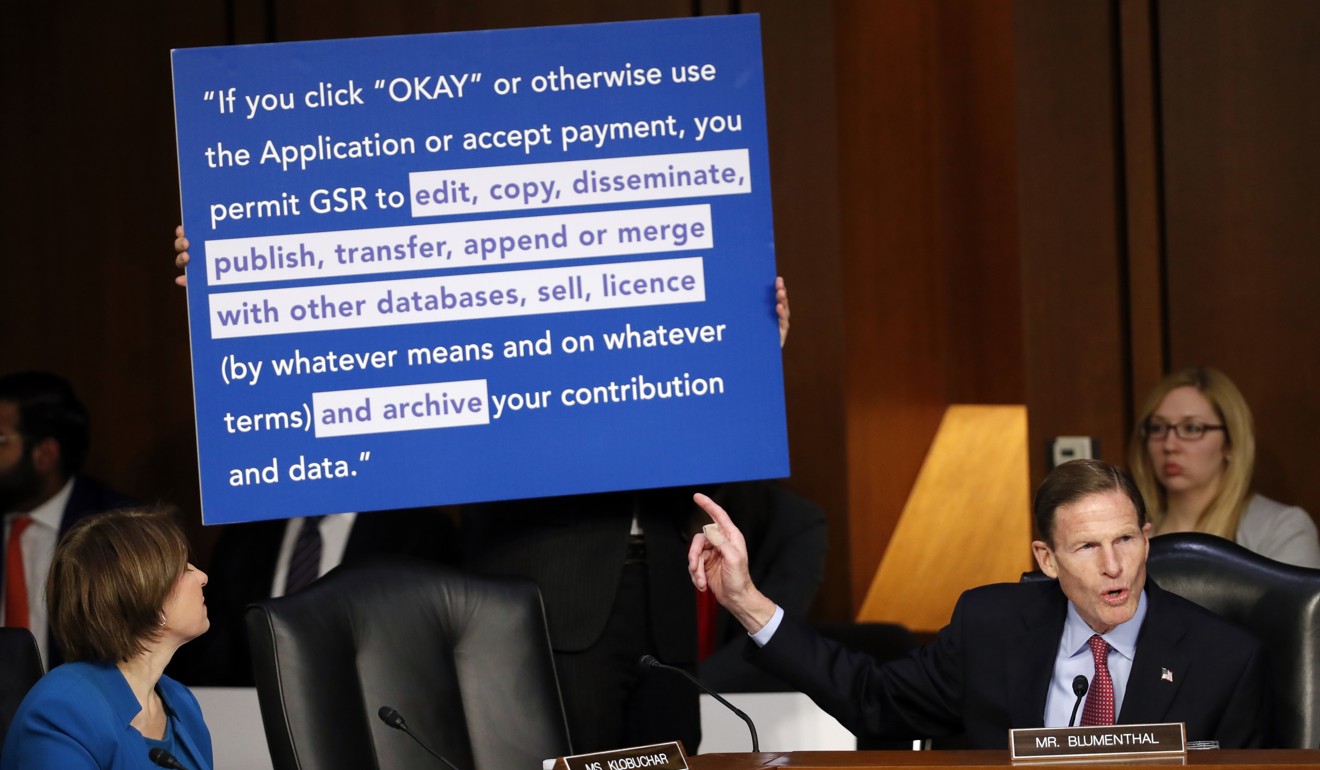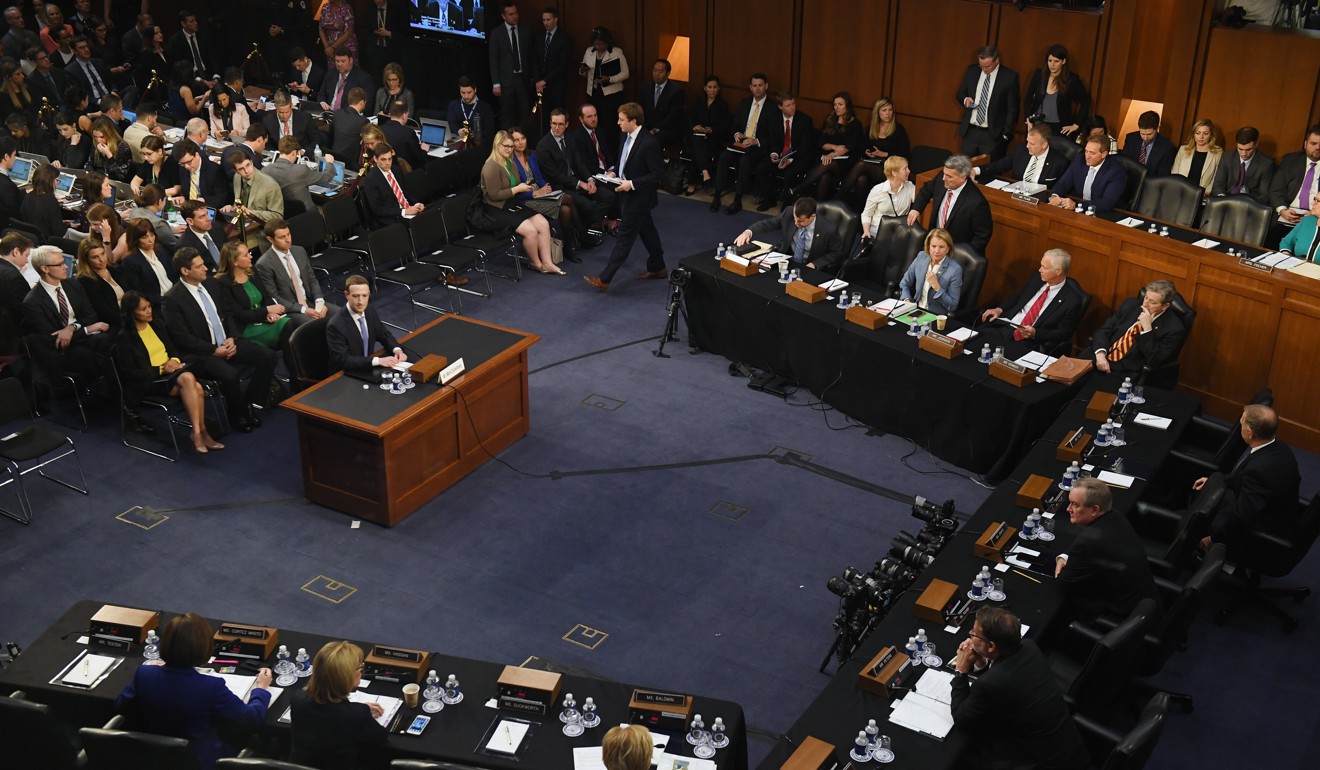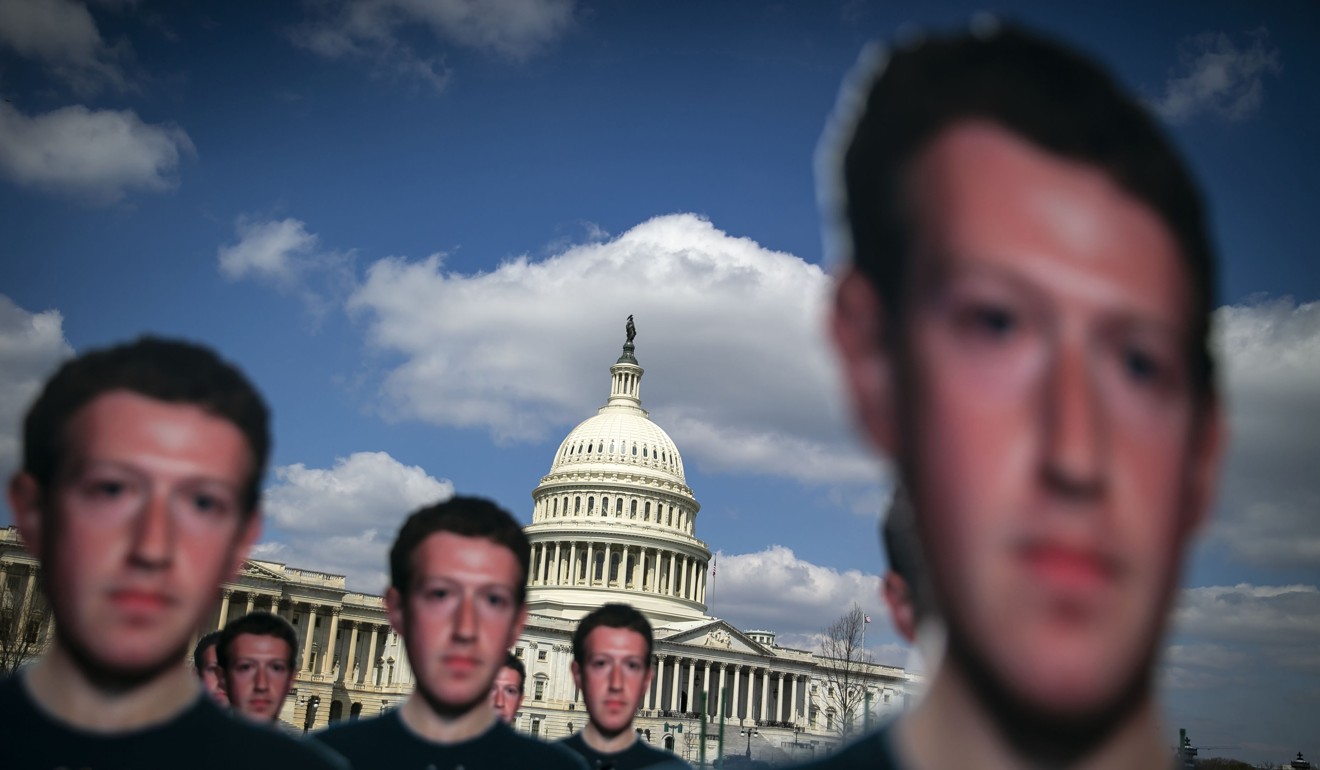
Zuckerberg says Facebook is in ‘arms race’ with Russian trolls and is helping Robert Mueller’s probe
In his first congressional appearance, the social media giant’s chief executive acknowledged privacy breaches and said he might support regulation of online companies ‘if it’s the right regulation’
Facebook chief Mark Zuckerberg took personal responsibility on Tuesday for the leak of data on tens of millions of its users, while warning of an “arms race” against Russian disinformation and admitting that his company was working with Special Counsel Robert Mueller’s Russia probe during a high-stakes discussion with US lawmakers.
In his first formal congressional appearance, the Facebook founder and chief executive sought to quell the storm over privacy and security lapses at the social media giant that have angered lawmakers and the network’s two billion users.
Under mounting pressure over the hijacking of its user data by a political consultancy, Zuckerberg, 33, reiterated his apology for the historic breach, before speaking of a constant struggle to guard against Russian manipulation of the Facebook platform to influence elections in the US and elsewhere.
“There are people in Russia whose job it is to try to exploit our systems and other internet systems and other systems as well,” he said.
“So this is an arms race. They’re going to keep getting better and we need to invest in getting better at this too.”
Zuckerberg has previously acknowledged the social network failed to do enough to prevent the spread of disinformation during the last US presidential race.

“After the 2016 election, our top priority was protecting the integrity of other elections around the world,” he said.
Zuckerberg also disclosed that Facebook is cooperating with the US special prosecutor investigating Russian interference in the 2016 vote.
“Our work with the special counsel is confidential. I want to make sure in an open session I don’t reveal something that’s confidential,” he said.
Activists say Facebook is censoring content in communist Vietnam
Zuckerberg said he had personally not been contacted, and that he was not specifically aware of any subpoena of Facebook data, saying: “I believe there may be [a subpoena], but I know we’re working with them.”
Swapping his customary T-shirt for a business suit and tie, Zuckerberg faced tough questions over how a US-British political research firm, Cambridge Analytica, plundered detailed personal data on 87 million users to be used in the 2016 US presidential election.


Reiterating comments from the past few days, he took responsibility for the data misuse.
“We’ve been working to understand exactly what happened with Cambridge Analytica and taking steps to make sure this doesn’t happen again,” he said in his prepared remarks.
Dozens of protestors gathered outside Congress before the hearing wearing Zuckerberg masks and #DeleteFacebook T-shirts.
Inside the jammed hearing room, activists from the Code Pink group wore oversized glasses with the words “STOP SPYING” written on the lenses, and waved signs that read “Stop corporate lying.”
Five urgent questions for Facebook CEO Mark Zuckerberg
Testifying was a new step for Zuckerberg, who started Facebook as a Harvard dropout in 2004, and built it into the world’s largest social media company, worth $470 billion.
During questioning, Zuckerberg rejected the suggestion that the social media giant, with more than two billion users worldwide, has exclusive control over its market.
“It certainly doesn’t feel like that to me,” he said when asked if he thinks Facebook has a monopoly, sparking laughter from the gallery.
“The average American uses eight different apps to communicate with their friends and stay in touch with people, ranging from texting apps to e-mail,” he said.
But when asked if Facebook favored regulation of online firms, he said, “I think if it’s the right regulation, yes.”

Lawmakers have suggested the election meddling and poor controls on personal data requires the government to step in to regulate Facebook and other social media companies which generate revenue from user data.
“The status quo no longer works,” said Senator Chuck Grassley, chairman of one of the committees holding the hearing.
“Congress must determine if and how we need to strengthen privacy standards to ensure transparency and understanding for the billions of consumers who utilize these products.”
“You have a real opportunity this afternoon to lead the industry and demonstrate a meaningful commitment to protecting individual privacy,” Democratic Senator Dianne Feinstein told Zuckerberg at the rare joint committee hearing, to be followed by a similar hearing in the House of Representatives on Wednesday.
Find out if your Facebook data was swept up in Cambridge Analytica scandal
Prior to the hearing, Senator Bill Nelson of Florida, one of the lawmakers who met privately Monday with Zuckerberg, said he believes the 33-year-old CEO is taking the matter seriously.
“I believe he understands that regulation could be right around the corner,” Nelson, a Democrat, said.
Other lawmakers were less clear about the need for new regulation.
Republican Senator John Kennedy of Louisiana said, “I’m not interested in regulating Facebook. I’m interested in Facebook regulating itself and solving the problems. I come in peace.”

.png?itok=arIb17P0)
